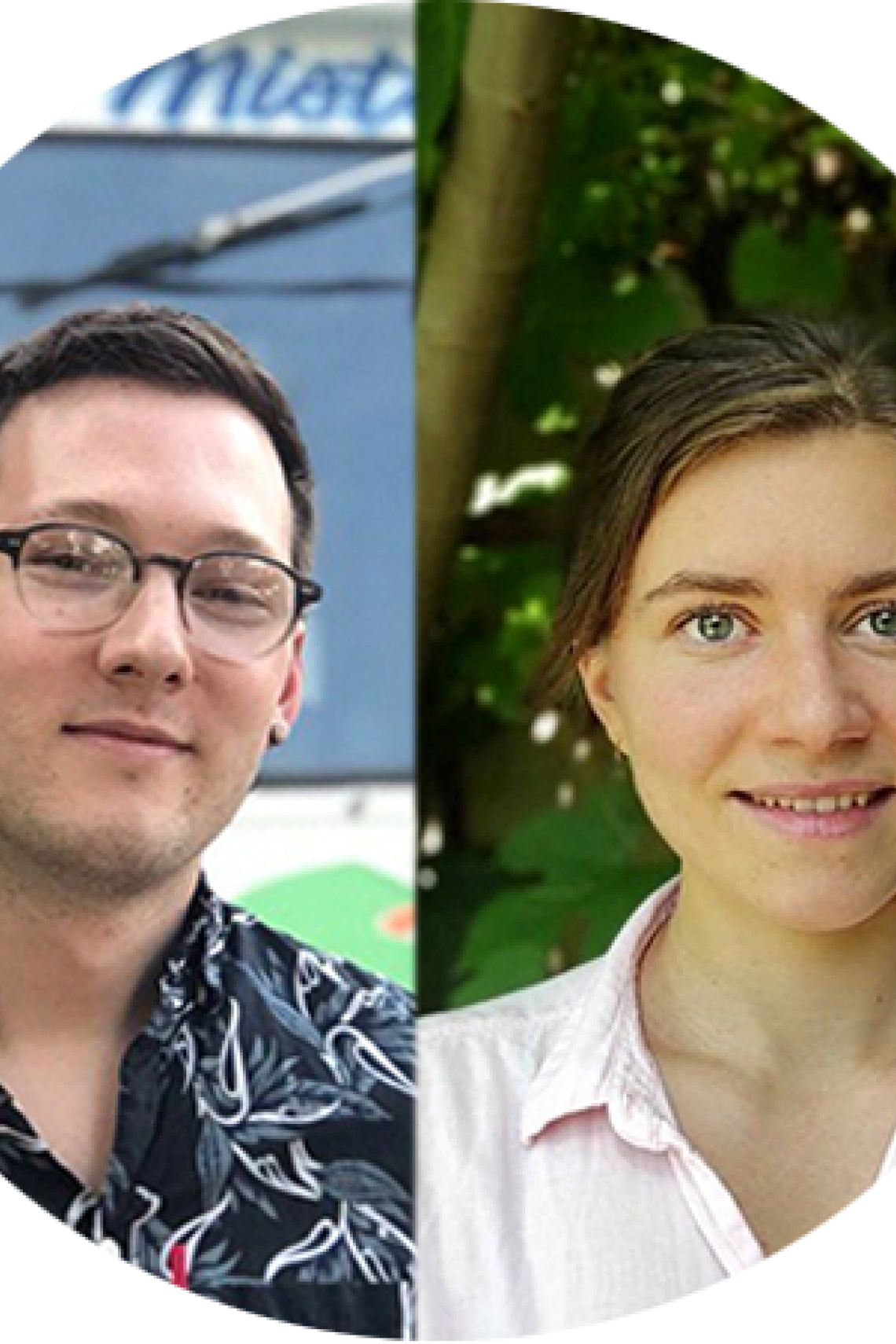Nicholas Carverhill and Leonie Hoffmann win 2020 MPhil prizes
Congratulations to Nicholas Carverhill and Leonie Hoffmann who have won the 2020 prizes for their performance in the MPhil in Development Studies.
[[{"fid":"2501","view_mode":"default","fields":{"format":"default","field_file_image_alt_text[und][0][value]":false,"field_file_image_title_text[und][0][value]":false,"field_image_information[und][0][value]":"","field_image_information[und][0][format]":"filtered_html"},"type":"media","field_deltas":{"1":{"format":"default","field_file_image_alt_text[und][0][value]":false,"field_file_image_title_text[und][0][value]":false,"field_image_information[und][0][value]":"","field_image_information[und][0][format]":"filtered_html"}},"link_text":null,"attributes":{"class":"file-default media-element","data-delta":"1"}}]]
Nicholas Carverhill of St John’s College won the Eugene Havas Memorial Prize for best overall performance, and Leonie Hoffmann of St Antony’s College won the Papiya Ghosh Thesis Prize.
Nicholas has now joined the Canadian Red Cross in logistics, working on the domestic pandemic response.
His thesis interrogates the relationship between civil society organizations and settler colonialism in Canada. Nicholas’s research at ODID has helped inform his approach to transformational politics on Turtle Island (part of which is known as Canada), where his organizing focuses on the redistribution of land, wealth, and power directly to communities struggling for justice.
Leonie’s thesis investigates the idea and politics of Universal Basic Income through a case study of public and policy contestation around basic income in democratic-era South Africa. Her research critically analyses the concept of basic income and its intellectual location, and then situates the idea and follows its political trajectory in the historically specific context of South Africa over twenty years.
Drawing on archival material and interviews with key stakeholders, Leonie’s prize-winning thesis brings to light different iterations of the basic income proposal, highlights the competing philosophies and political strategies underpinning them, and challenges notions of a cross-partisan consensus on basic income. It also shows how (dis)agreement about basic income can serve as a lens into the deeper ideological and pragmatic debates and divides of policy actors relating to the role of work, development, and the state.
Leonie is continuing on to the DPhil in International Development at ODID, where she will focus on work programmes in South Africa.
Find out more about the MPhil in Development Studies

